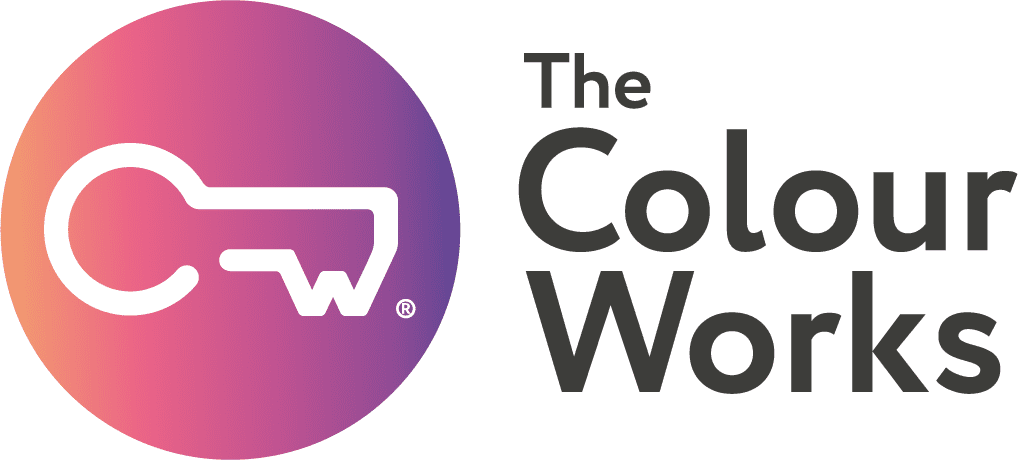The Coaching Culture Challenge

Every organisation, in fact, any group of people with shared territory, including family units, create their own unique culture – it’s essentially a human social characteristic and has its roots way back in evolution.Culture can simply be described as ‘the way we do things around here’ (McKinsey & Co 2003). Culture is made up of the collective attitudes and behaviours of a particular group of people, and it develops without us even knowing it. We know it is set by leadership teams and played out by others (positively or negatively).
We also know that it’s subjective, and that within an organisation slightly different cultures can exist, from, let’s say, finance to marketing, or from those who have been in service for years to those who are new. We also know that differences can exist between tiers of management and leadership teams, which makes creating clarity and steering a culture towards one that you desire challenging, but far from impossible.[ultimate_spacer height="10"]There are different types of identified cultures, all with pros and cons. At the Colour Works we believe the most powerful, effective, engaging and rewarding framework is a culture that uses a coaching philosophy.
A coaching culture empowers people to take ownership and be the best they can be. It develops people from within and embraces self-awareness, encourages self-management and vulnerability, and accepts diversity in all its forms. Creating a coaching culture is everyone’s responsibility, and it doesn’t matter what your title is, which team you report to, or what department you are in.
A coaching culture isn’t something that should be readily dismissed. Organisations have learnt a lot about their people (and vice versa) over the last two years and as we plan for future ways of working, and as the younger generation accelerates into senior leadership roles, embedding a coaching culture has never been more important.That’s why we’re working with organisations across the globe to deliver coaching and leadership workshops, both in-person and online. We believe every business has the potential to build a workplace culture that encourages development, creates high-performing teams, and prepares us all for an evolving future. This month, the Coaching Culture Challenge aims to help you do just that!
If you’re new here, welcome to The Colour Works Challenge! Each month we focus on some of the key skills that we can all introduce to create a vibrant workplace culture and highly engaged teams through a greater understating ourselves and others.The Colour Works has been working with teams like yours to develop leadership and team-working skills for nearly 20 years. We are the UK’s leading distributor of the world-renowned Insights Discovery model of behaviour and offer a range of workshops, webinars and free resources to help you get the most out of your personal, team or leadership journey.
The Coaching Culture Challenge is just one of the ways you can get involved and develop your workplace skills with us. Have you attended one of our complimentary webinars yet? Or signed up for our newsletter? There’s so much to get involved with and we’re pleased to have you with us.
Defining a Coaching Culture in the Workplace
So, what do we mean when we talk about embedding a coaching culture in the workplace? A snippet from Megginson and Clutterbuck describes the style of management that we’re referring to:
“Coaching is the predominant style of management and working together, where commitment to improving the organisation is embedded in a parallel commitment to improving the people” Techniques for Coaching and Mentoring, David Megginson & David Clutterbuck
But what about those of us who don’t have ‘manager’ in our job title? Do we need to consider our coaching skills? YES! A coaching culture is about connecting our teams, developing individuals, and encouraging people to be the best version of themselves. You don’t need to be the boss to make that happen.
As the world becomes increasingly more connected, with Zoom calls remaining a constant part of our lives, it’s never been more important to embed a mentality that encourages collaboration and makes the individuals within your team feel psychologically safe at work. Essentially, we’re referring to an open, honest, and trusting coaching culture.
The Coaching Culture Challenge
Over the next five days, we’re inviting you to participate in the Coaching Culture Challenge. It’s easy. Five activities, no more than 15 minutes long, hand-picked by the experts at The Colour Works to improve your understanding, build self-awareness and give you solid action points to take away and work.
Work in HR? Listen up. Embedding a coaching culture in the workplace is key to people development. Whether it starts with you, or you recognise some of these skills within your team, don’t let this leading-edge style of working slip away from you!
Don’t forget to share your success stories with us on LinkedIn using the hashtag: #ColourWorksChallenge. We’ve also made it easier than ever for you to take part. Add the coaching culture challenge to your calendar for daily reminders about each activity.
Without further ado, let’s take the 5-day Coaching Culture Challenge!
Day 1: Read and Define
What is a Coaching Culture?
A coaching culture is about redefining how leaders lead from the inside. Forget delegation and the idea that what the boss says goes. A great coach listens and asks timely, open and probing questions. A great coach isn’t afraid to get their hands dirty. Most importantly, a great coach has a genuine desire to develop others and knows the success of an organisation lies in helping its people flourish.
Read this blog by Ed Parsloe for Kogan Page to understand exactly what we mean when we talk about a coaching culture. You might recognise some of the points in your own character, or maybe somebody else in your team. Remember the Matrix? This fun parody re-enacts the scene where Morpheus coaches Neo to realise his true powers… which would you choose… the blue pill, or the red pill??
Day 2: Watch and Learn
Why Build a Coaching Culture?
Understanding what we mean when we talk about a coaching culture is all well and good; however, you need to understand the benefits of embedding this kind of culture in your organisation.
A coaching culture can work wonders for your teams. It encourages a level of openness where individuals aren’t afraid to speak up with their ideas. They’ll support each other in all aspects of work with continuous feedback, contribution, and accountability. Your teams won’t be scared to make mistakes… they’ll learn from them and ultimately become better at what they do.
This whiteboard animation tells you everything you need to know, including all the pros and cons, in under 9 minutes! Grab a cup of coffee, sit back, and relax while you discover why you should build a coaching culture.
Day 3: Identify and Action
Make Use of our Team Performance Indicator
Understanding what a coaching culture means for your workplace with all the associated benefits is one thing; actioning your learning on a day-to-day basis is another. Rather than tackling it all at once, let’s first take a look at your team.
Our Team Performance Indicator gives you an overall picture of your teams’ strongest areas. It will also highlight some potential areas for improvement. Perhaps your team is highly collaborative when it comes to making decisions that affect the organisation as a whole, but tend to take a back seat when it comes to offering feedback, and let frustrations fester rather than talking openly.
On completion of our Team Performance Indicator, you will be offered some recommendations on how to coach your team in any low scoring areas. Then, using what you’ve learnt so far and what you’ll learn throughout the Coaching Culture Challenge, get your team together and facilitate some change.
Day 4: Ask Questions and Gain Feedback
Conduct an Informal 360°
Feedback is a crucial element of creating a thriving workplace culture. Today we’re talking about 360° feedback which is a great way to start the process of embedding that essential feedback loop in teams.
We’re all used to receiving feedback from our leaders. Annual appraisals and work performance reviews are standard practices in many organisations. While this can be useful, gathering feedback and comparing your own opinion against that of your direct reports, colleagues, and supervisor on not only WHAT you’re doing but HOW you’re doing it is a great way to expand self-awareness and create accountability.
Eventually, 360° feedback should become part of your workplace culture. First, you need to understand exactly what needs to be done to bring this practice into your organisation. So, here’s a five-minute video containing four questions for your personal self-assessment.
Ask a colleague for ten minutes of their time and find out more about yourself. Did you find this exercise helpful? Did anything come up that you weren’t expecting? Let us know on LinkedIn by using the hashtag #ColourWorksChallenge.
Day 5: Stop, Listen and Question
Practice Active Listening and questioning
Being able to listen and question effectively is a key skill for coaching; the true answer typically exists beneath the initial reply.
That’s why today’s activity is all about becoming a better listener and asking better questions which is easier said than done, but achievable with a bit of practice!
Read this great blog by MindTools to learn how to become an active listener and listen to your team more effectively. They’ve also uploaded a video and created an infographic so you should have no problem squeezing this resource into your busy day!
Asking timely, well delivered questions isn’t a dark art, it’s a skill that’s completely learnable. Yes, there are those who are more naturally equipped, but here are some top tips on landing those great questions:
- Be gentle and not accusatory
- Use open questions where possible
- Hone in with probing questions on important or relevant feedback
- Lean into the silence when you’ve asked a question… give them space to answer
All the above requires practice, but on average we have around 27 conversations a day, so that’s 27 opportunities to practice these skills – don’t hold back and just give it a go!!
How Did You Do?
Well? How did you get on? The aim of the coaching culture challenge was to deepen your understanding of what this type of culture means for your business and teach you some key skills that will help introduce a coaching culture into your organisation.
You’ve defined what it means to be a great coach and learnt the value this has business-wide. You have also identified some areas that your team might benefit from working on, ready to deliver the feedback required to action these points.
On the subject of feedback, day four’s activity was an informal 360° self-assessment. Now you have a better understanding of the feedback model that many of us know and love. Finally, we covered listening and landing questions, often underappreciated skills when it comes to communication. A good listener understands and empathises with their team, helping to create open and honest relationships. Couple that with a few well intended questions to help others unpick issues and find the answers themselves, and you have the philosophy of a coaching culture.
We’d absolutely love to see how you and your team got on. Don’t forget to follow The Colour Works on LinkedIn, Instagram and Facebook where we regularly share great tips about coaching, leadership and feedback. Use our hashtag #ColourWorksChallenge to join in with the conversation.Next month, the Colour Works Challenge is all about resilience. How do you and your team deal with changes at work? Do you have bouncebackability? Make sure you’re signed up to our mailing list to receive updates and reminders when the challenge takes place.




